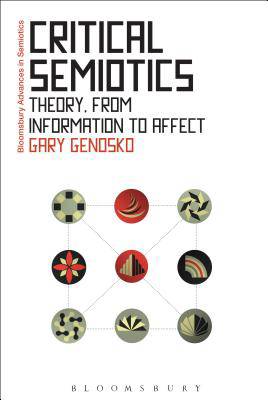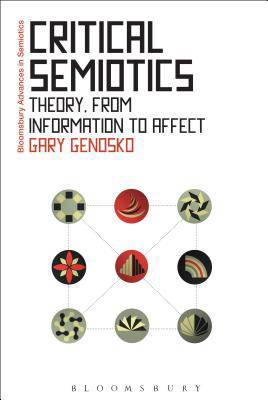
- Afhalen na 1 uur in een winkel met voorraad
- Gratis thuislevering in België vanaf € 30
- Ruim aanbod met 7 miljoen producten
- Afhalen na 1 uur in een winkel met voorraad
- Gratis thuislevering in België vanaf € 30
- Ruim aanbod met 7 miljoen producten
Zoeken
Omschrijving
Critical Semiotics provides long overdue answers to questions at the junction of information, meaning and 'affect'. The affective turn in cultural studies has received much attention: a focus on the pre-individual bodily forces, linked to automatic responses, which augment or diminish the body's capacity to act or engage with others. In a world dominated by information, how do things that seem to have diminished meaning or even no meaning still have so much power to affect us, or to carry on our ability to affect the world?
Linguistics and semiotics have been accused of being adrift from the affective turn and not accounting for these visceral forces beneath or generally other from conscious knowing. In this book, Gary Genosko delivers a detailed refutation, with analyses of specific contributions to critical semiotic approaches to meaning and signification. People want to understandhow other people are moved and to understand embodied social actions, feelings and passions at the same time as understanding how this takes place. Semiotics must make the affective turn.
Linguistics and semiotics have been accused of being adrift from the affective turn and not accounting for these visceral forces beneath or generally other from conscious knowing. In this book, Gary Genosko delivers a detailed refutation, with analyses of specific contributions to critical semiotic approaches to meaning and signification. People want to understandhow other people are moved and to understand embodied social actions, feelings and passions at the same time as understanding how this takes place. Semiotics must make the affective turn.
Specificaties
Betrokkenen
- Auteur(s):
- Uitgeverij:
Inhoud
- Aantal bladzijden:
- 200
- Taal:
- Engels
- Reeks:
Eigenschappen
- Productcode (EAN):
- 9781472596369
- Verschijningsdatum:
- 22/09/2016
- Uitvoering:
- Paperback
- Formaat:
- Trade paperback (VS)
- Afmetingen:
- 155 mm x 231 mm
- Gewicht:
- 362 g

Alleen bij Standaard Boekhandel
+ 159 punten op je klantenkaart van Standaard Boekhandel
Beoordelingen
We publiceren alleen reviews die voldoen aan de voorwaarden voor reviews. Bekijk onze voorwaarden voor reviews.








